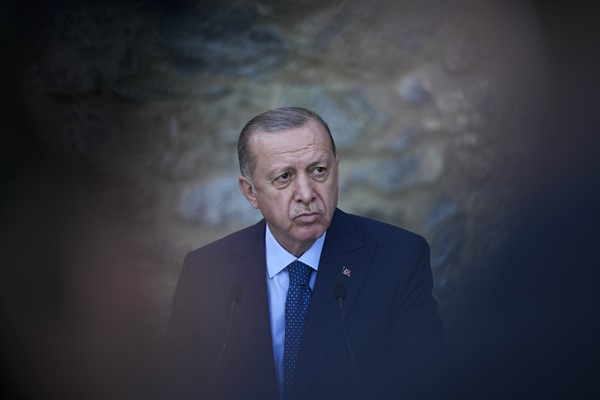It’s never a good sign for a country’s leader when fluctuations in the value of the national currency become a dominant concern for everyday people. That is the case today in Turkey, where President Recep Tayyip Erdogan is taking a huge gamble with his monetary policy, setting a controversial interest rate policy that runs contrary to firmly established economic theory and has caused the local currency, the lira, to nosedive. Slashing the value of savings, spooking investors and further fueling inflation, the policy is already causing significant hardships for the Turkish people, who polls show have lost faith in the government’s competence after several years of economic turmoil. The country may now be approaching a potential turning point in its politics, which have been dominated by Erdogan for nearly two decades.
Erdogan’s bet is that lower interest rates will act as rocket fuel for the economy, igniting growth to a level that would not only increase economic activity, but also bolster his own sagging political fortunes. Yet most economists say he’s playing with fire, risking a catastrophic overheating. The Turkish people, meanwhile, seem to have had enough of soaring inflation, of the sinking value of their savings—and of the president.
Economic theory established long ago that when inflation rises steeply, the right course of action is to boost interest rates to cool growth. But Erdogan, who like many autocratic leaders enjoys an inflated sense of his own brilliance, has insisted on pushing rates lower, arguing—against ample evidence—that bringing them up would make inflation worse. As his handpicked officials do his bidding, repeatedly slashing interest rates, the results have been exactly in line with what economic models predict: higher inflation and a plunging currency. The collapse of the lira has been spectacular—and for many, spectacularly painful.

